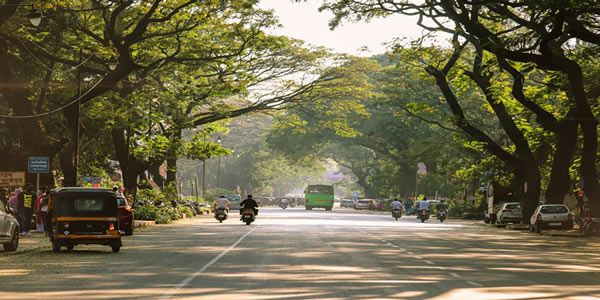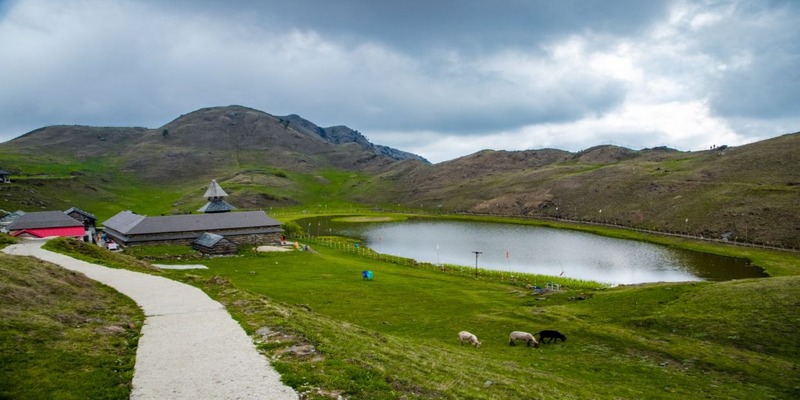As a result of the numerous rules and regulations, as well as potential obstacles that are waiting for visitors, crossing foreign borders may frequently be a challenging and intimidating undertaking. On the other hand, persons from every sphere of life can experience an easier and less stressful experience when crossing borders if they apply some strategic tactics and are prepared. One way to think about borders from a philosophical standpoint is as fictitious lines on a map drawn decades or perhaps centuries ago by an unknown person whom you will never even meet.
Regarding customs and border agents, governments and their agents tend to see them more concretely. Even though crossing particular geopolitical lines is significantly more challenging for certain individuals than it is to feed others, there are a few things travelers can do to make crossing borders as easy and uncomplicated as possible, regardless of who they are.
Here Are The 5 Ways To Make Border Crossing Easier
1. Do Your Research
Before embarking on any trip, conducting in-depth research on the specific nation or nation you will be traveling to is necessary. You must thoroughly understand the community's customs and procedures, the prohibited items, and any insensitivities that may have affected the experience you had during your trip. Certain countries have rigorous regulations regarding the importation of specific things, which include religious materials and medications, especially electrical gadgets.
These regulations are in place to protect the public from harm. Travelers who are aware of and adhere to these limits will be able to avoid unnecessary delays and problems at border crossings. This is because they will be able to prevent unnecessary delays. Exploring the globe through travel may be thrilling. Moving and changing may be daunting, leaving us isolated and craving something familiar. Reconnecting with our roots is crucial at times like these.
Like trees, our roots ground us and provide stability in life's uncertainties. They symbolize our heritage, culture, and defining individuals and places. Reconnecting with our origins can help us achieve equilibrium after the chaos of travel. Reuniting with our origins can take various forms.
With familiar sights, sounds, and smells all around them, some people might go back to their childhood haunts. Others may spend time with loved ones and family, exchanging generations-old stories and customs. Whatever way we reconnect with our roots, we must cultivate and preserve the links that define us. We may find refuge and courage in our identity while exploring the globe. When travel overwhelms you, halt, breathe, and reconnect with your origins.
2. Get Yourself Organized
By efficiently organizing one's belongings and pieces of baggage, it is possible to speed up crossing the border greatly. This could be accomplished. It is vital to put essential goods, including liquids and electronic devices, among compartments that are easily accessible to make the experience of going through security screenings less onerous.
This ensures that the procedure is completed more quickly and efficiently. It is to one's advantage to have all of the necessary documentation, including passports and visas, as well as information regarding lodgings, nicely arranged and readily accessible at all times. This is done to reduce the likelihood of delays and speed up the immigration procedures.
Everyone's life is made simpler when you're well-organized and have all of your vital records and information at hand. As a result, you won't have to waste as much time browsing or standing in line, as well as the assistance staff will be able to work more quickly. Thus, it's a good idea to travel with everything organized and accessible.
You may go more easily through the procedure if everything is in order. It's similar to having every puzzle piece ready to go; it speeds up the process of assembling the entire image! Thus, having your passport, visa, and hotel information organized and immediately accessible makes things run more smoothly and swiftly at the airport and border crossing.
3. Practice Politeness

It is possible to dramatically improve the experience of crossing the border by displaying a courteous and cooperative manner while engaging with officials at the border. This is one way to do this. When responding to queries, it is vital to do so in a polite and timely manner. It is also essential to appropriately respect the authority and customs officers they represent.
By showing compassion and patience, travelers can increase the likelihood of having pleasant contacts and reduce the possibility of potential issues. The immigration process will finally be finished in a shorter amount of time due to this matter.
Border workers are only doing their jobs. They want everyone to be safe and obey regulations. Friendly and courteous communication makes things simpler for everyone. If an officer asks a question, answer kindly and honestly. They're only checking in, so cooperation helps. If you need help or don't understand something, politely ask.
Compassion and patience also help. Anger or frustration won't help if there's a large queue or things take longer than intended. Stay calm and empathetic to make the process easier for yourself as well as others.In the end, being kind and cooperative at the border enhances your experience and makes everyone happier. Next time you cross the border, be nice, patient, and respectfulit'll help everyone.
4. Put Your Safety First
How you cross a border is influenced by several factors, including the people you are, your history, and your looks. It is far easier for some people to go from one nation to another than for others to do so over the same distance. The identification of a passenger, or even something as seemingly insignificant as a tattoo, might be the reason for their detention at a border crossing site.
During the process of crossing borders, there are a variety of ways in which you may ensure your safety. Some basic methods, such as wearing clothing that makes you feel good about yourself, while others are more complicated. It might mean avoiding visiting a certain destination or taking a group tour with a respected operator rather than doing it alone to take advantage of the peace of mind that comes with having more people present.
5. Keep Some Funds On Hand

Crossing the border with cash might make it simpler. Cash is little bills you can use to buy goods. Why traveling with cash is important: First, border fees may apply. For instance, you may need to pay a visa to enter a foreign nation or a bridge or road toll. Having cash on hand lets you pay these fees easily.
Secondly, cash helps in crises. If you lose your wallet or credit card, having extra cash might help you get by. You may buy food, take a cab, or call using it. Not all locations accept credit cards or other payments. Cash may be the sole option for purchasing food or souvenirs in some nations, especially rural ones. Having cash means you won't have to find an ATM or check if an establishment accepts cards.
Conclusion
Even though crossing borders may contain inherent complexities and uncertainties, it is feasible to decrease the likelihood of encountering potential difficulties and assure a more pleasurable travel experience by employing clever strategies and being well-prepared. Visitors can traverse foreign borders with comfort and confidence if they conduct considerable study, arrange the necessary paperwork, demonstrate civility, and put their safety as their top priority. Because of this, they can concentrate on having the most enjoyable experience possible on their trip.





